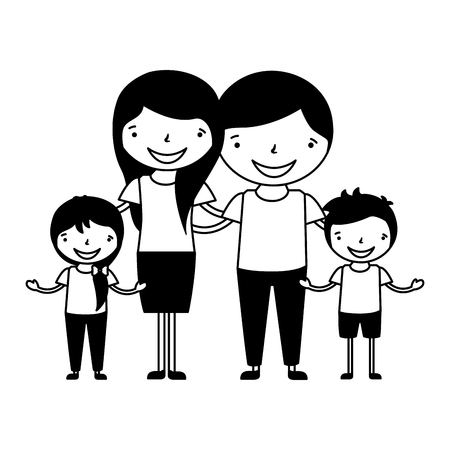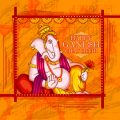Understanding Rahu and Ketu in Vedic Astrology
In Indian astrology, especially in the Vedic tradition, Rahu and Ketu are not physical planets but shadowy celestial points, known as lunar nodes. Their significance is deeply rooted in Indian culture, mythology, and daily life, often influencing the way families perceive harmony and discord within their households. Rahu represents the North Node of the Moon, associated with desire, ambition, materialism, and confusion. Ketu, on the other hand, is the South Node of the Moon and symbolizes detachment, spirituality, past-life karma, and enlightenment. Together, they are often called “Chhaya Grahas” or shadow planets and are believed to create karmic influences that manifest as both opportunities and challenges in one’s life.
According to common beliefs across India, when Rahu or Ketu strongly influence a person’s birth chart—especially through the 4th house (home) or 7th house (relationships)—it can lead to disturbances or unexpected changes in family life. Many families turn to astrologers for guidance during times of conflict or misunderstanding at home, suspecting a ‘Rahu Dasha’ (Rahu period) or ‘Ketu Dasha’ may be at play. In many Indian households, remedies such as chanting mantras like “Om Raam Rahave Namah” for Rahu or “Om Ketave Namah” for Ketu are practiced to pacify these energies and restore harmony.
The impact of these shadow planets extends beyond individual horoscopes—they are believed to affect collective household energy too. It’s not uncommon to hear elders discuss how a Rahu-Ketu transit might be causing disputes or disharmony among family members. In summary, understanding Rahu and Ketu is essential for anyone interested in how astrological forces shape Indian family dynamics—sometimes sowing seeds of conflict but also offering pathways to deeper spiritual connection and harmony.
2. Traditional Indian Family Dynamics and Astrological Influence
The Indian family system is deeply rooted in tradition, respect, and collective values. Most households follow a joint family structure, where multiple generations—grandparents, parents, children, and sometimes uncles and aunts—live under one roof. This setup fosters close-knit relationships but also brings its own set of challenges, especially when it comes to roles, expectations, and interpersonal harmony.
Overview of Family Structure and Relationships
In a typical Indian household, the head of the family (often the eldest male) holds significant authority in decision-making. Women traditionally manage domestic affairs and play a pivotal role in maintaining unity among members. Children are raised with strong values around obedience, duty, and respect for elders. Cousins often grow up like siblings, creating bonds that last a lifetime.
| Family Role | Responsibilities | Astrological Consideration |
|---|---|---|
| Head of Family (Patriarch/Matriarch) | Decision-making, conflict resolution | Jupiter & Saturn positions |
| Mother/Wife | Domestic management, nurturing relationships | Moon & Venus influences |
| Children | Learning traditions, respecting hierarchy | Mercury & Rahu-Ketu effects on education and mindset |
| Siblings/Cousins | Support system, sharing responsibilities | Mars & Ketu connections influencing sibling dynamics |
The Role of Astrology in Shaping Interactions
Astrology is not just a belief system; it is often woven into the daily fabric of Indian family life. From choosing auspicious dates for important events to understanding individual temperaments through kundali (birth chart) analysis, families regularly consult astrologers to navigate relationships and resolve disputes. The positions of Rahu and Ketu—considered shadow planets—can particularly influence misunderstandings or harmony within the home. For example, a Rahu period might trigger ego clashes or sudden changes in roles, while Ketus influence may lead to detachment or spiritual introspection among members.
Cultural Practices: Astrology Meets Tradition
Matrimonial alliances are often finalised only after matching horoscopes to ensure compatibility and avoid future conflicts. Naming ceremonies, housewarming functions (griha pravesh), and even business decisions may be timed according to favorable planetary periods. This seamless blend of tradition and astrology helps maintain balance and fosters mutual respect within Indian households—even when Rahu-Ketu energies seem challenging.

3. Rahu’s Impact: Triggers of Disputes and Conflicts
When discussing the effects of Rahu in Indian households, it is important to understand how this shadow planet often acts as a catalyst for misunderstandings and conflicts among family members. In Vedic astrology, Rahu is notorious for amplifying desires, egos, and illusions—qualities that can disturb familial harmony if not managed mindfully.
Misunderstandings: Seeds of Discord
Rahu’s placement in key houses such as the 4th (home environment), 7th (relationships), or 10th (status) often sows confusion. For example, in a typical joint family in Mumbai or Chennai, Rahu’s influence may manifest as suspicion between daughter-in-law and mother-in-law, where innocent gestures are misinterpreted, leading to feelings of isolation or resentment. Even small issues like allocation of household chores or spending patterns can escalate under Rahu’s energy.
Ego Clashes: Power Struggles Within the Family
Rahu tends to inflate egos, making it difficult for individuals to see each other’s perspectives. This can lead to frequent arguments between siblings over property matters or business decisions—a scenario common in many Indian families with ancestral assets. The traditional “Who gets what?” debate can become more intense and emotionally charged when Rahu is prominent in the family chart, resulting in long-standing grudges.
Tensions Across Generations
The generational gap is another area where Rahu’s disruptive force becomes evident. Elders may feel their authority is being challenged by younger members who adopt modern values and lifestyles. Take, for instance, a family in Delhi where the father insists on following age-old customs during festivals, while his children prefer contemporary celebrations. Under Rahu’s sway, such differences can escalate from healthy debates to full-blown confrontations.
Relatable Indian Examples
Consider a situation during wedding preparations—one of India’s most emotionally charged events. Rahu’s presence might make small disagreements over rituals or guest lists spiral into heated disputes between families from both sides. Likewise, in daily life, something as simple as dividing responsibilities for Diwali cleaning can spark ego battles if Rahu is activating latent insecurities.
By recognizing these patterns, families can take conscious steps to reduce Rahu’s negative impact through open communication and traditional remedies like pujas or gemstone recommendations by trusted astrologers. Ultimately, awareness of Rahu’s tendencies helps Indian families transform potential disputes into opportunities for growth and deeper understanding.
Ketu’s Role: Challenges and Detachment in Family Bonds
In the tapestry of Indian households, Ketu’s influence often brings subtle yet profound shifts, particularly when it comes to family unity and emotional bonding. Unlike Rahu, which tends to create outward chaos and disputes, Ketu works silently, fostering detachment, emotional distance, and sometimes a feeling of isolation among family members. For many Indian families, where joint living and close kinship are highly valued, Ketu’s energy can pose unique challenges that might not be immediately obvious but are deeply felt over time.
Emotional Distancing Under Ketu’s Influence
Ketu is associated with spirituality, detachment, and introspection. When strongly placed in a family members chart or in significant houses related to domestic life, it can manifest as a lack of warmth or difficulty in expressing affection. This may lead to misunderstandings—where gestures of love or care are either overlooked or misinterpreted. In Indian culture, where daily rituals like sharing chai or celebrating festivals together strengthen familial ties, such emotional gaps can become sources of silent suffering.
Common Manifestations of Ketu’s Impact
| Impact Area | Typical Experience | Indian Context Example |
|---|---|---|
| Emotional Connection | Lack of intimacy or warmth | A child feeling ignored despite being in a large joint family |
| Communication | Misunderstandings; unspoken words | Elders’ advice being misunderstood by younger members |
| Sense of Belonging | Feeling isolated even when surrounded by relatives | A spouse feeling out-of-place during family functions like Diwali gatherings |
Miscommunication & Disconnection: The Silent Barriers
Often, Ketu’s presence leads to miscommunication—not only in words but also in intentions. Family members may act with good intentions but fail to convey them effectively, resulting in unnecessary hurt feelings or confusion. Over time, this can erode trust and the sense of togetherness that is so integral to Indian family systems. Unlike overt arguments (often seen under Rahu), these issues simmer quietly beneath the surface.
Coping with Ketu’s Effects: A Cultural Perspective
To address Ketu’s challenges within the household, many Indian families turn to traditional remedies such as performing pujas for ancestral peace (Pitru Dosha Nivaran), lighting diyas on Saturdays, or engaging in charitable acts. Open communication channels—such as regular family meetings or shared meals—also help bridge the gap created by Ketu’s detaching influence. Acknowledging these subtle emotional patterns allows families to consciously nurture harmony and maintain those cherished bonds that define Indian home life.
5. Restoring Harmony: Traditional Remedies and Astrological Solutions
When Rahu and Ketu disrupt the peace of an Indian family, many households turn to time-honoured remedies rooted in astrology and tradition. These solutions, cherished for generations, help neutralize negative energies and restore harmony among family members. Here are some of the most common and effective practices:
Pujas and Rituals: Invoking Divine Blessings
In Indian homes, performing specific pujas dedicated to Rahu and Ketu is a popular remedy. Navagraha Shanti Puja, Rahu-Ketu Graha Shanti, and special temple visits on Tuesdays or Saturdays are highly recommended by astrologers. Lighting diyas with mustard oil, offering blue or black cloth to temples, and participating in milk abhishekam for Lord Shiva also help pacify these shadow planets’ influences.
Mantra Chanting: Harnessing Spiritual Vibrations
Reciting Rahu and Ketu mantras is believed to create protective spiritual vibrations that dispel negativity. Commonly chanted mantras include “Om Ram Rahave Namah” for Rahu and “Om Kem Ketave Namah” for Ketu. Many families integrate these chants into their daily or weekly routines, especially during Rahu Kalam or on auspicious days like Maha Shivratri.
Vastu Tips: Realigning Energy Flow at Home
According to Indian vastu shastra, the layout of your home can attract or repel planetary influences. To balance Rahu-Ketu energies, keep the south-west corner clean and clutter-free, avoid mirrors facing the main door, and place a bowl of sea salt in corners to absorb negativity. Placing blue-coloured decor elements in the north-west direction is also advised by vastu experts.
Practical Advice for Families
Alongside these remedies, maintaining open communication and fostering forgiveness within the family helps break the cycle of disputes associated with Rahu-Ketu effects. Consulting a trusted astrologer (jyotishi) for personalized guidance based on your family’s birth charts ensures remedies are both effective and culturally resonant. By blending traditional wisdom with practical steps, Indian families can reclaim peace and togetherness even amidst astrological challenges.
6. Building Lasting Harmony: Modern Insights and Family Bonding
Blending Tradition with Contemporary Values
In the modern Indian household, the influence of Rahu and Ketu is often seen as a reflection of evolving relationships and shifting family dynamics. While traditional wisdom teaches us to respect rituals and astrological remedies, today’s families can enhance these practices by fostering open communication and nurturing value-based connections. Combining the time-honoured insights of our elders with modern dialogue creates a resilient foundation for lasting harmony.
Open Conversations: The Heart of Togetherness
While Rahu may stir misunderstandings or ego clashes, and Ketu might lead to emotional distance, encouraging honest conversations within the family can reduce these effects. Create safe spaces for every member, from grandparents to children, to express their feelings. Use empathetic listening—what we call sunna in Hindi culture—to truly understand each other’s perspectives before responding. This practice helps bridge generational gaps and strengthens emotional bonds.
Value-Based Bonding: Building Trust Across Generations
Indian families thrive on shared values like respect, gratitude, and support. Reiterate these through daily rituals—such as sharing meals, celebrating festivals together, or performing simple pujas at home. These acts are more than tradition; they’re opportunities for family members to reconnect and reinforce their commitment to one another, keeping negative planetary influences at bay.
Practical Suggestions for Harmonious Family Life
- Balance Rituals with Reason: While performing remedies for Rahu-Ketu dosha (like mantra chanting or feeding animals), also discuss openly how each member feels about these practices.
- Quality Time: Dedicate regular family time without distractions—be it chai-time discussions or weekend outings—to nurture unity.
- Shared Decision-Making: Involve everyone in important decisions. This democratic approach respects individual voices and minimizes misunderstandings.
- Cultural Storytelling: Share stories from Indian epics or family history that highlight overcoming adversity together—these inspire resilience against astrological challenges.
By weaving together ancient wisdom and modern relationship skills, Indian families can neutralize the disruptive energies of Rahu-Ketu and build a sanctuary of love, trust, and lifelong togetherness. Embracing both astrology and open-hearted communication paves the way for harmony that lasts across generations.

